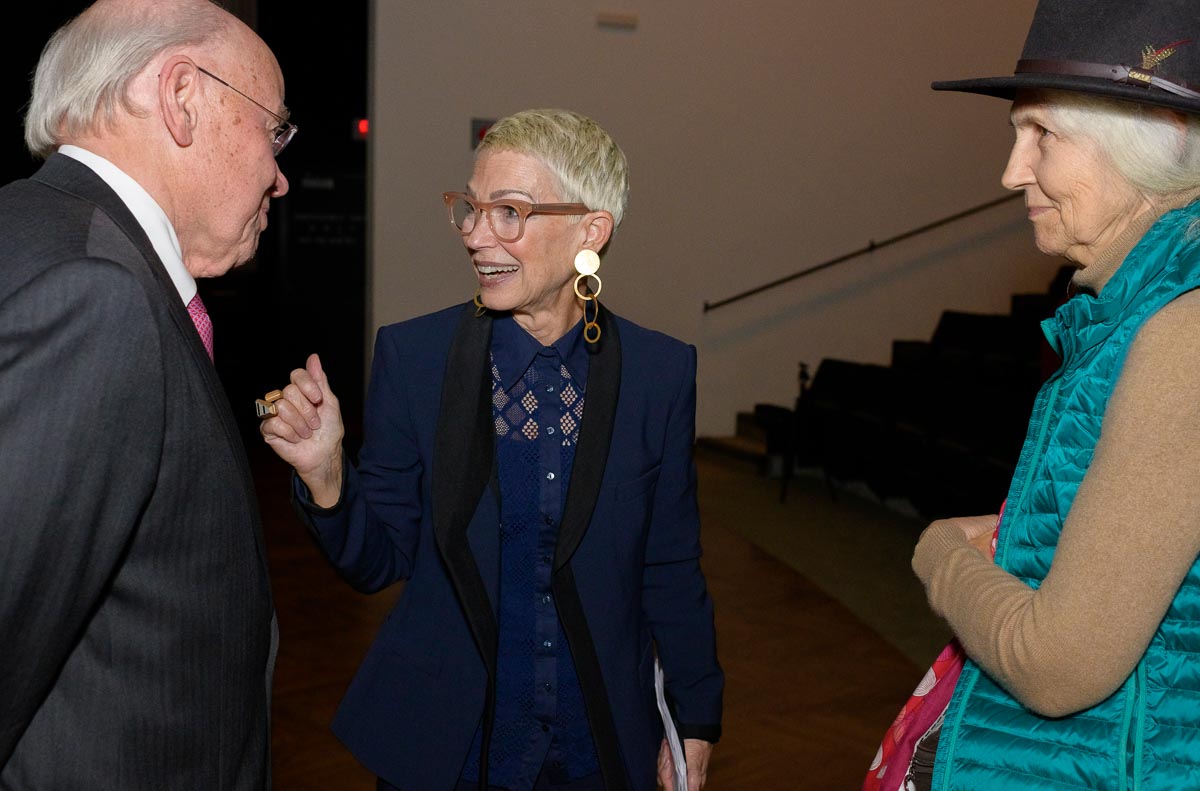It might not come as a shock, but Americans' happiness and trust in society is lowering, reports show.
"The U.S. showed less social support, less sense of personal freedom, lower donations and more perceived corruption of government and business," last year's World Happiness Report says.
Carol Coletta, a senior fellow with the Kresge Foundation's American Cities Practice, ties the lack of trust and happiness in America to the abandonment of city's public spaces and the lack of bonding with one's neighbors as a cause of Americans' distrust in each other.
"We can't see our neighbors, so we can't feel our neighbors," Coletta said in the opening of her lecture at the Kinder Institute Forum Wednesday. "When we can't see our neighbors, we begin to draw our own conclusions about them. The most disturbing trend fueling our loss of empathy towards our neighbors is that our communities are still dramatically segregated." She continued saying that a third of citizens live in a neighborhood that is so economically segregated that the area is either mostly rich or mostly poor.
She ties this segregation to the abandonment of public spaces, like parks, pools, libraries and community centers.
There have been some counter-movements. An example of revitalizing a public space is found in the Pop-Up Pool Project, a 2015 campaign in Philadelphia lead by city planner Ben Bryant. The project sparked a new movement that transformed more than a dozen public pools by adding vibrant-colored seating, shade and new paint to attract neighbors back to a central, public space. The grass-roots project prompted the city's parks and recreation department to expand the Swim Philly initiative into new neighborhoods and inevitably reconnected neighbors to each other.
"You can take the most contested space - as public pools are - and if you design them right, then you can bring people together," Coletta said. "We are going to have to make communities that support people who enjoy mixing it up with others. Not because we are forced to do it, but because we are delighted by it. This, though, is a lot harder than it sounds."
This, she argues, is because there has been a "civic abandonment in public spaces." Coletta said if a family can afford private schools, they will abandon public schools for better education for their kids; if they can afford club sports, then they'll abandon their local recreation center; if they can afford the better option or what they perceive as the better option, they'll opt for that option. But this only reinforces our divisions and America's issue with mistrust, Coletta noted, especially with minorities.
During her talk, she noted that the combination of our neighborhoods being segregated economically plus the abandonment of public places often leads to segregation among races, which leads to people creating their own impressions on other groups of people that they are not mixed in with.
"Because, remember, if you can't see 'em, you can't feel 'em," Coletta said.
In conclusion, Coletta pointed to the potential in a city's "glamour project," a city-wide, public-space project or initiative that will benefit a diverse group of people, both racially and economically, throughout the entire city.
Houston's glamour project? The Bayou Greenways 2020, which aims to connect 3,000 acres of land along Houston's bayou systems to each other through 150-miles of hike-and-bike trails to parks and communities.
Coletta believes that this project will bring people from varying socio-economic and racial backgrounds back together in a public space.
"By most measures, Houston is a success, but the future of any city is not inevitable and today's successes don't last forever," Coletta said. "A 21st-Century city must be developed to make us - no, compel us - to interact with each other."

